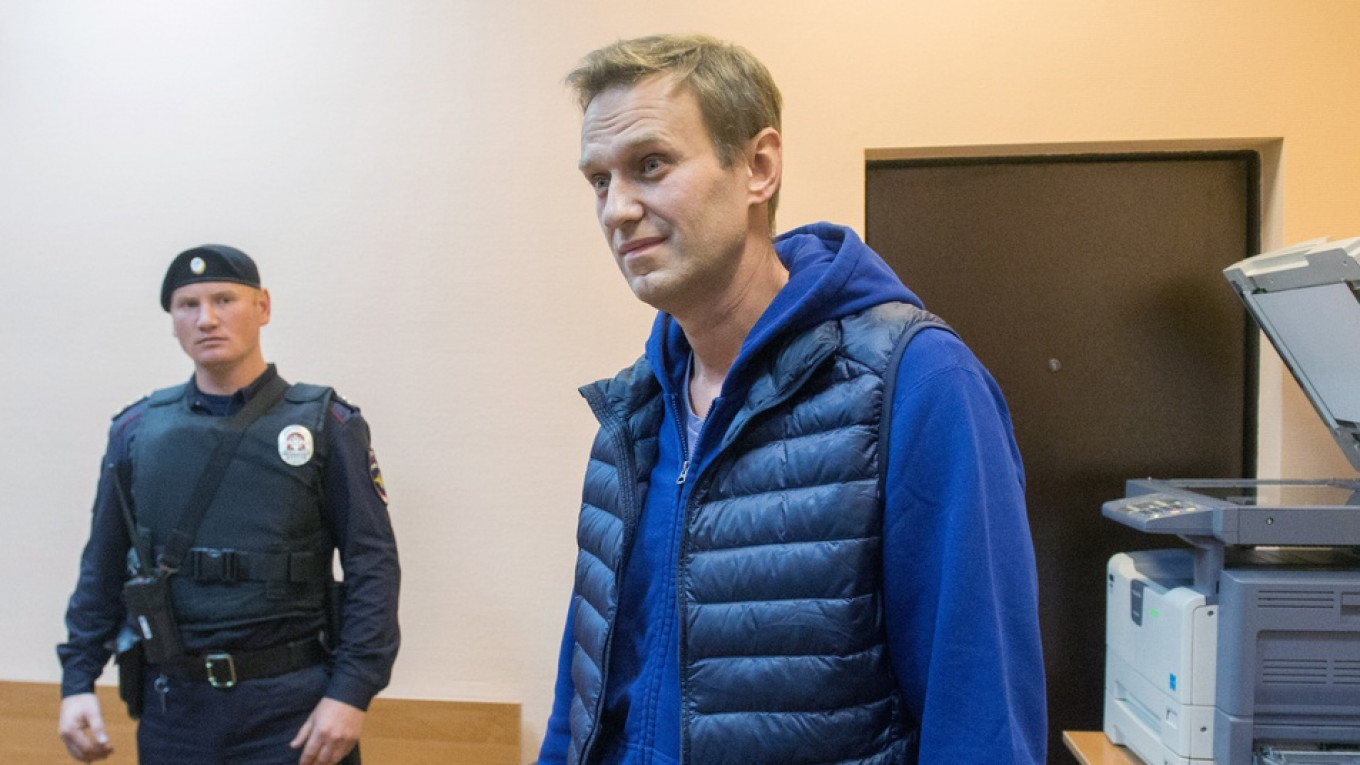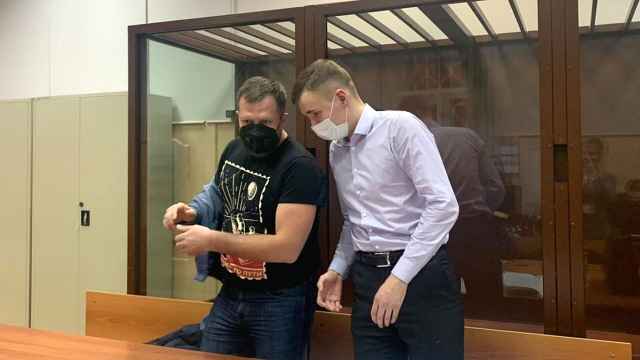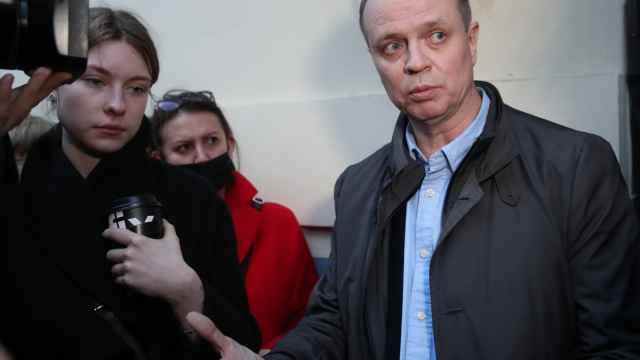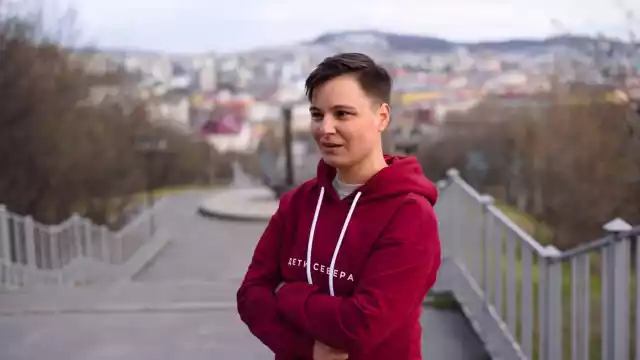Russian opposition leader Alexei Navalny was freed after serving 30 days in jail on Monday — but was then immediately detained and jailed for a further 20 days on charges of staging an illegal protest.
Navalny's supporters said he was arrested moments after walking from jail at the end of his previous stint handed down for planning an unauthorized demonstration in Moscow in January that called for a boycott of what he said would be a rigged presidential election.
He appeared again in court on Monday evening where he was found guilty of organizing an illegal protest on Sept. 9, his supporters said.
Navalny, 42, denied to the court any involvement in the illegal protest on Sept. 9 because he had been in jail at the time when Moscow authorities turned down an opposition request for the rally. "I had no means of communication, no Internet... I was completely isolated," he said.
A Reuters reporter saw him being escorted out of the courtroom by a group of uniformed men after the judge finished reading out the verdict.
His associates said the move was meant to sideline him at a time of growing discontent over unpopular government reforms.
The Kremlin's plan to raise the retirement age has seen thousands of Russians take to the streets in recent weeks and shaved around 15 percentage points off President Vladimir Putin's popularity rating.
Before he began his 30-day stint in jail, Navalny said his sentence was designed by the authorities to prevent him from leading nationwide protests against the pension reform on Sept. 9, where more than 800 people were detained.
Lyubov Sobol', a lawyer at Navalny's anti-corruption foundation, said he was being targeted by the authorities because of these protests against pension reform.
"They are isolating a politician and leader of the opposition," she wrote on Twitter.
The proposed pension reforms are the most unpopular government measure since a 2005 move to scrap Soviet-era benefits, though Putin softened the plan after initial protests.
Navalny, who has been repeatedly jailed for planning unauthorized demonstrations, has pledged he would never give up trying to organize street protests.
Reuters reported for this article.
A Message from The Moscow Times:
Dear readers,
We are facing unprecedented challenges. Russia's Prosecutor General's Office has designated The Moscow Times as an "undesirable" organization, criminalizing our work and putting our staff at risk of prosecution. This follows our earlier unjust labeling as a "foreign agent."
These actions are direct attempts to silence independent journalism in Russia. The authorities claim our work "discredits the decisions of the Russian leadership." We see things differently: we strive to provide accurate, unbiased reporting on Russia.
We, the journalists of The Moscow Times, refuse to be silenced. But to continue our work, we need your help.
Your support, no matter how small, makes a world of difference. If you can, please support us monthly starting from just $2. It's quick to set up, and every contribution makes a significant impact.
By supporting The Moscow Times, you're defending open, independent journalism in the face of repression. Thank you for standing with us.
Remind me later.






